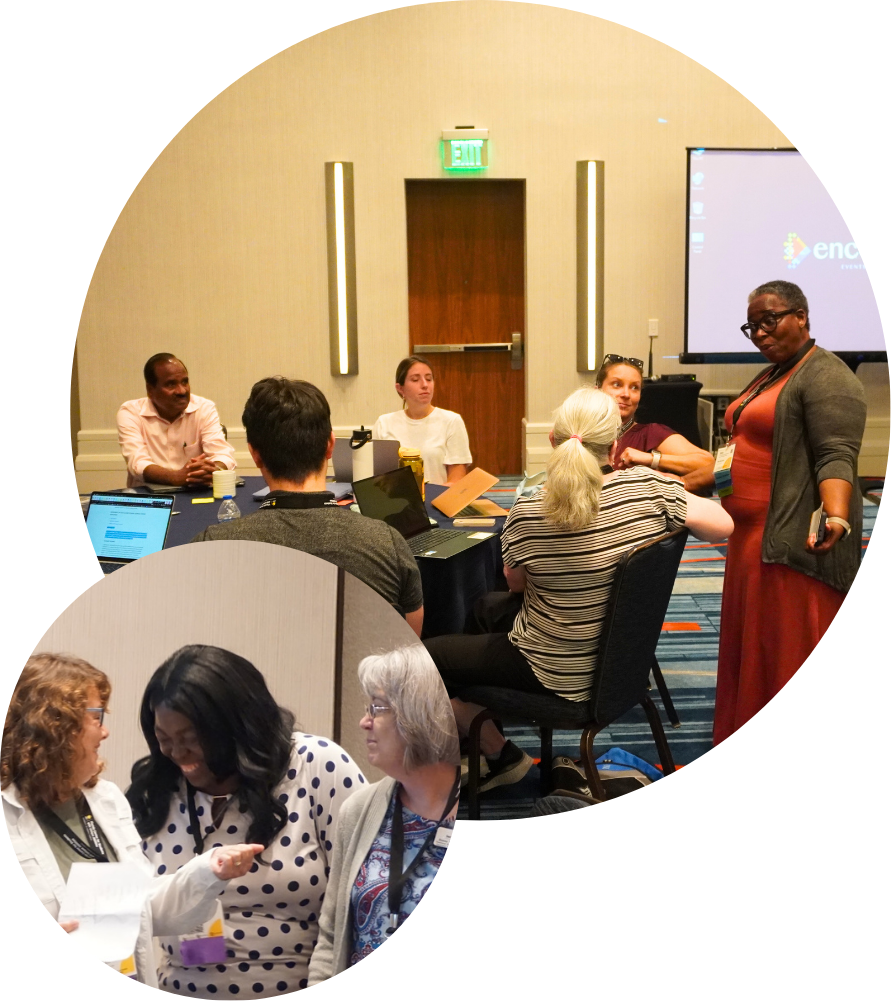FPCTP Strategic Planning
Starting an FPCTP
Are you interested in developing a Florida Postsecondary Comprehensive Transition Program (FPCTP) at your institution?
The first step to becoming an FPCTP involves strategic planning. Teams from eligible institutions start by identifying their team members and assessing their current status. They then develop goals and action steps that outline the program on their campus. Eligible institutions include:
- State universities
- Florida College System institutions
- Career centers
- Charter technical career centers
- Independent college or university that is not for profit, is accredited by the Commission on Colleges of the Southern Association of Colleges and Schools and is eligible to participate in the William L. Boyd, IV, Effective Access to Student Education Grant Program.
If you are wanting to start an FPCTP, the first thing to is do is create a team consisting of faculty and staff at your institution (such as student accessibility services, financial aid, enrollment services, leadership, student affairs, office of research) other stakeholders (such as K-12 Exceptional Student Education transition staff, parents of students with intellectual disabilities, students with and without disabilities).
Contact FCSUA for an initial conversation where center staff will explain the initial strategic planning, the application process, as well as resources, and responsibilities that will come with having an approved program.
If the team is ready to move forward, FCSUA will provide a facilitator to guide the initial strategic planning process using our online Strategic Planning Tool - Postsecondary Education. The initial strategic plan is a key element in writing your FPCTP Application and Initial Grant.

Online Strategic Planning Tool
This team planning tool is designed to foster implementation of evidence-based and promising practices (EBPPs) in Florida Postsecondary Comprehensive Transition Programs (FPCTP). It focuses specifically on assisting interdisciplinary postsecondary education teams to review the extent of implementation and effectiveness of their programs serving students with intellectual disabilities on their college and university campuses, identify their strengths and needs, and develop an implementation and evaluation plan to address their needs.
To foster program development and improvement grounded in evidence-based and promising practices (EBPPs), the planning process applies Dukes, Madaus, Faggella-Luby, Lombardi, and Gelbar's (2017) PASS model for conceptualizing research regarding postsecondary education services for students with disabilities, the Taxonomy for Transition Programming 2.0. (Kohler, Gothberg, Fowler, & Coyle, 2016) and the Think College Standards (Grigal, Hart, & Weir, 2012) to present postsecondary education and transition practices content in four domains: student-focused, faculty and staff-focused, program and institution-focused, and concept and system development. Each of these domains includes specific benchmarks through which we synthesize the EBPPs.
.png)
Domains
Student-Focused
The student-focused domain “addresses the experiences and perceptions at the level or unit of analysis of students with disabilities in higher education” (Dukes et al., 2017, p. 114)
Faculty and Staff-Focused
The faculty and staff-focused domain “addresses the knowledge, attitudes, and beliefs of faculty and non-disability services personnel (e.g., student affairs generalists) to enhance access to higher education for students with disabilities” (Dukes et al., 2017, p. 115).
Program and Institution-Focused
Program and institution-focused refers to “service provision by the SDS in a higher education institution and also includes institutional policies and procedures that pertain to college students with disabilities” (Dukes et al., 2017, p. 115).
Concept and Systems Development
The domain of concept and systems development “addresses the development, evaluation, or validation of a variable” (Dukes et al., 2017, p. 115).
Resources
All steps in the planning process include a set of reflective questions and indicators that can be utilized by the team to examine the degree to which they are implementing the practices described. FCSUA has developed a user's manual to assist with navigational instructions and best practices.
The tool is designed to help you apply specific program development strategies through your planning and implementation process to facilitate implementation of the EBPPs. These strategies are organized into four areas: data-based decision-making, capacity building, resource mapping and development, and partnership development. This tool is designed to be used through a continuous improvement process that includes data collection and review, planning, evaluation, and assessment of goal attainment that addresses student recruitment, enrollment, advising, completion, and employment outcomes.
